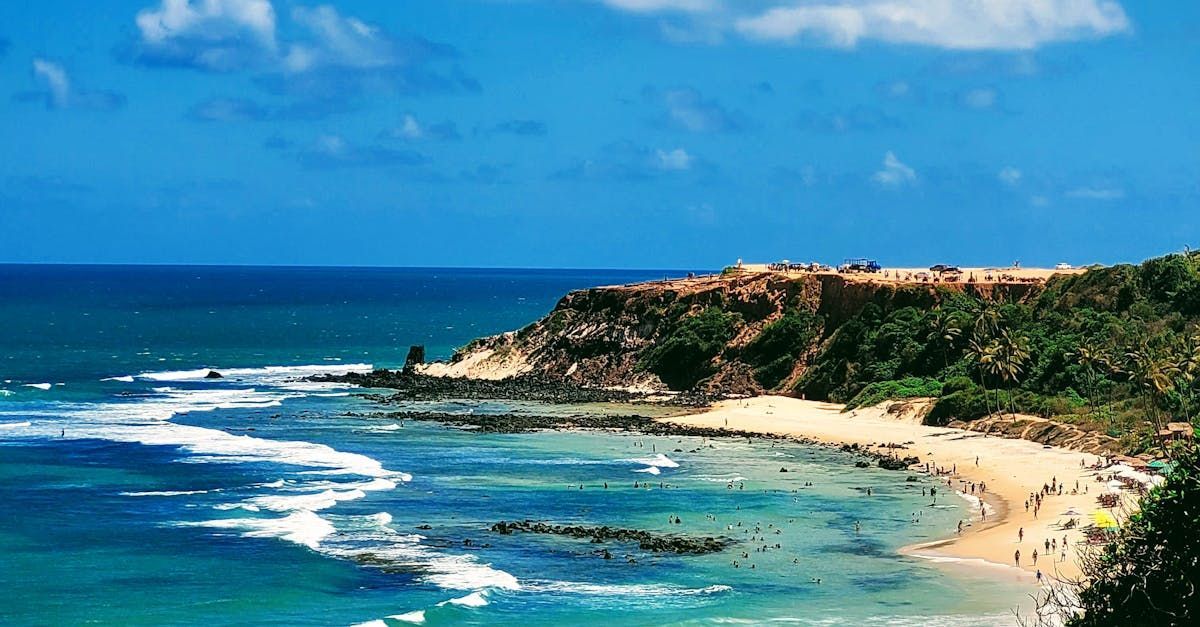Starting a business in Portugal: find out how to start a business in the country
Starting a business in Portugal: find out how

Starting a business, regardless of the country, requires planning.
The success of the venture will depend especially on how prepared you are to start a business. But the challenge of starting up in another country adds extra weight to the business.
Starting a business in Portugal is a simple and unbureaucratic process that, in some cases, can be done by the entrepreneur himself.
Check out the step-by-step process for starting a business in Portugal, costs, documents, taxes and the best way to do it, namely through the D2 entrepreneur visa
How to open a business in Portugal as a Brazilian?
There is no difference between opening a company in Portugal if you are Brazilian or Portuguese. The opening process itself is very similar. The main difference lies in what you need to live in Portugal as an entrepreneur.
To live in the country and become an entrepreneur, you need to have Portuguese citizenship or citizenship of any country in the European Union, or
thave the appropriate visa to start a business.
One of the main challenges for Brazilian entrepreneurs is the capital needed to start a business, especially considering the devaluation of the Brazilian real. Another possibility for those who don't have all the capital they need are special credit lines for entrepreneurs. Even if you're a foreigner, you can use them.
Step by step to open a company in Portugal
If you want to start a business abroad, here's a step-by-step guide on how to open a company in Portugal:
1. draw up a business plan
The first step is to come up with a good business idea, a name for your company, a logo and prepare a complete business plan. The business plan acts as a "guide" for you to follow before making any decisions.
At this stage of the planning process, you need to do a market analysis, check whether the business you want to open has strong competitors, what your monthly costs will be, your audience, etc.
2. Define the type of company you are going to open
The second step is to define what type of company you want to open in Portugal: singular (individual) or collective - we'll go into detail about each of the models below.
Once you've defined the type of company, it's also important to choose who your accountant will be - called an accountant in Portugal. This way, you can analyze with greater certainty the best type of framework and tax regime for your company, among other issues such as staff, turnover, expenses, etc.
3. Gather the necessary documentation
Once you have chosen the type of company that best fits your business profile, you need to gather the necessary documentation to start the process of opening your company.
If you prefer, you can hire the advice of a lawyer or accountant so that the professional can guide you correctly, ensuring that everything goes as efficiently and professionally as possible.
As a foreigner, you will certainly have many doubts (if even in Brazil we already have doubts about opening a company, imagine abroad).
4. Opening time
Once you have gathered the necessary documentation, it's time to open your company. You can open your company online, if you meet the requirements, just go to the Citizen's Portal.
If you prefer to open your company in person, to avoid mistakes and also to be able to ask questions, go to the Empresa na Hora in the city where you live and do everything there.
5. Open a bank account
Just like in Brazil, when you open a company you have to go to a bank and open a bank account in Portugal.l bank account. In this case, you can opt for public or private banks, whichever you prefer.
Always analyze the monthly fees, conditions, benefits and see which bank might be the most advantageous for your company.
6. Start the activities
The last step in the process of opening a company is to start the activity with the NIB (bank number). The accountant usually takes care of this and from then on your company will be legal in Portugal.
How much does it cost to start a business in Portugal?
To open a company in Portugal there are two direct costs: the opening cost and the admissibility cost. In 2020 these costs represent:
- Cost of registration by Empresa na Hora: 360 euros;
- Certificate of Admissibility for setting up a company: 70 eurosnormal application or 150 euros for urgent applications.
In other words, it can cost from
430 euros or 510 eurosdepending on the urgency.
However, there are other costs that can be incurred depending on the category of company. One of these is a company with real estate or shareholdings that need to be registered, for each of which the cost is 50 euros.
In some cases, you also need to consider the costs of a Chartered Accountant or a lawyer, since it is not always possible to open a company on your own, and in some cases the responsible professional is required.
Taxes for starting a business in Portugal
Taxes must be taken into account not only when opening a company, but throughout the life of the business. There are at least 4 taxes in Portugal that are levied on companies:
- IRC: Corporate Income Tax is levied on companies. Applied to the profit of the business, it represents a rate of 21%. For SMEs with the first 15,000 euros of profit, the rate is 17%;
- VAT: the tax varies according to the segment and can be 6%, 13% or 23%;
- TSU: Taxa Social Única (Single Social Tax), if you have contract workers, is the contribution paid to Social Security by each employee. It represents 23.75% of each employee's salary;
- Municipal surcharge: levied on company profits, the tax cannot exceed 1.5%, but varies according to the city in which the company is located.
Documents for starting a business in Portugal
The documents required to open a company in Portugal are:
- Commercial registration;
- Proof of Social Security registration;
- Declaration of Commencement of Activity;
- Certificate of Admissibility;
- Deposit of share capital;
- Memorandum or articles of association.
The memorandum or articles of association must be drawn up in accordance with the following ready-made templates provided by Empresa na Hora, which make the process of starting a business easier.
If the partners are natural persons, they need to submit:
- Identification document, which can be a Citizen's Card, passport or Residence Permit;
- Enter your Tax Identification Number (TIN).
How to open a company in Portugal online?
To open a company in Portugal online, simply go to the Empresa Online website, However, you need to have a Citizen's Card with an activated digital signature to apply. Otherwise, you can open a company with the help of lawyers, notaries or solicitors.
Quota companies, sole proprietorships and limited liability companies can be opened online. All you have to do is authenticate them to start the process.
If you want to do it on your own but don't have a citizen's card, it's not possible to open your business online. On the Spot Business Counter.
Types of companies in Portugal
There are different types of companies in Portugal, the starting point for determining the type you intend to open is whether it will be a sole proprietorship or a partnership.
Individual businesses
If you want to set up a sole proprietorship in Portugal, you can also opt for two categories of business: an Individual Entrepreneur and a Private Limited Company. The two models are detailed below.
Sole proprietor
In the case of an Individual Entrepreneur, there is no requirement to have a minimum share capital to start a business, which can make it much easier for those who don't have the reserves to invest.
In this category, if annual income does not exceed 200,000 euros, you can opt for the simplified accounting system, and you don't need to hire an accountant. Another advantage is that if income does not exceed 10,000 euros per year, the entrepreneur is exempt from VAT.
To open a company as an Individual Entrepreneur, all you have to do is file a Declaration of Commencement of Activity with the Tax Office. You'll automatically be included in the Social Security system, and for the first year of your business, you'll be exempt from the contribution.
Sole Proprietorship
In the case of a Sole Proprietorship, the entrepreneur's responsibilities are limited and he doesn't have to pay the company's debts out of his personal assets. For those who opt for this model, it is necessary to obtain the Certificate of Admissibility before opening the business, as well as depositing the share capital and drawing up the company's memorandum of association.
The Sole Proprietorship by Quota business model is more complete, which is why it is especially suitable for those with a higher turnover. The model requires a responsible accountant. The share capital of the business must also be defined, which can start at one euro, and a bank account must be opened for the company.
Business in partnership
There are four types of company in Portugal, the most common being the Sociedade em Quotas and the Sociedade Anônima. Below we'll take a closer look at the two models for those who want to start a company with partners.
Private limited companies
A limited company can have 2 members or more. In the model, the share capital per partner starts at 1 euro. In the case of a partnership, you need to draw up a Memorandum of Association to start the business.
Joint Stock Company
In the case of a joint-stock company, a minimum of 5 partners is required to open the business, which is why it is a more limited model and not suitable for most businesses. Another difference is the minimum amount of share capital, which must be at least 50,000 euros, divided between the partners according to their share in the business.
You can consult the Commercial Companies Code to better understand the models and which one fits your objectives.
Does opening a company in Portugal give the family a visa?
Yes. If you are going to open a company in Portugal, you must apply for an entrepreneur visaor if it's a high-value business that meets the requirements, you can apply for the Gold visa. In both cases, it is possible to apply for family reunification.
Entrepreneur visa
This visa, called D2 Visais intended for those who want to make a smaller investment in Portugal. There is no minimum share capital required to apply for the D2 visa.
Through the process, the holder of the Residence Permit can apply for family reunification: spouses (married or in a stable union), children who are minors or incapacitated, children over the age of majority who are single and studying in Portugal, among other specific frameworks.
Thus, when opening a company in Portugal, holding an appropriate visa, it is possible to extend the authorization to live in the country to the family as specified above.
Do I have to hire people to get a visa? Do I need to hire Portuguese in my business?
No. You are not obliged to hire people in order to get the visa, nor is there a requirement to hire Portuguese people if you have an entrepreneur visa. The modality does not require the creation of jobs to be granted.
On the other hand, if you opt for the Gold Visa, there may be a requirement to create jobs. In other words, if you apply for the specific visa, you need to create at least 10 jobs in order to get permission to live in the country.
The most popular residence visas in Portugal are:
✔ Study or Internship Visa
✔ Work Visa
✔ Entrepreneur Visa
✔ Self-Employed or Retired Visa
✔ Golden Visa
✔ Startup Visa
Want advice on visas?
Follow the link: http://ow.ly/qkju50ARtPg
To reside legally in Portugal, you must apply for a visa before traveling to Portugal.
You'll find out with the Orientation:
What types of visas are available;
Which visa is right for you;
What are the procedures;
What are the steps for obtaining a visa;
Instagram: @vp_viaportugal
WhatsApp: +351 920 493 758
Email: viaportugal@veportugal.com
#cometoportugal #portuguesecitizenship #portuguesenationality #vistoparaportugal #viaportugal #visas #goldenvisa #visagold #investiremportugal #maputo #mozambique #visas #national visas #portugal #livinginportugal #livinginportugal #security #luanda #angola #caboverde #brasil
Via Portugal - Visas, Nationality, Citizenship, Legalization, Investment and Entrepreneurship













